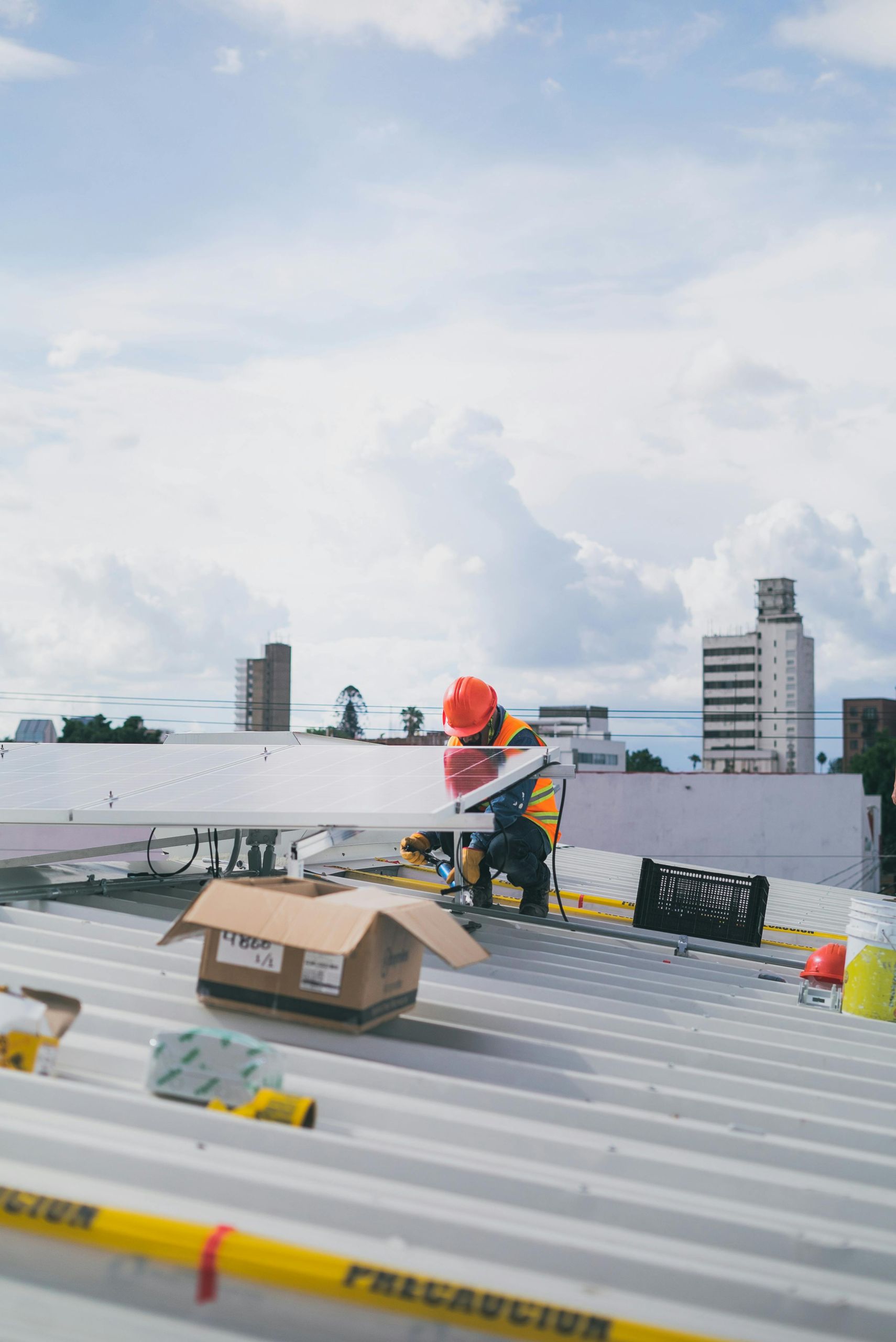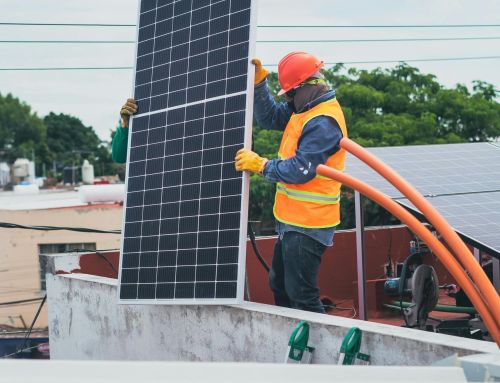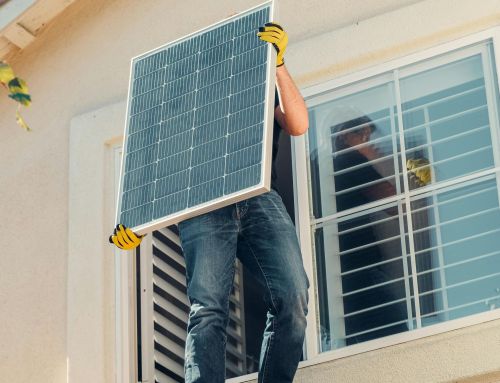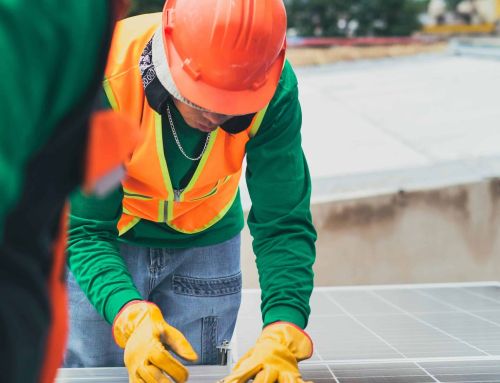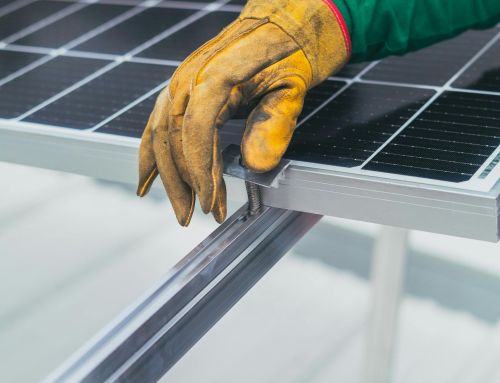Picture this: you’re running a thriving business, but the rising cost of energy is always on your mind. Running lights, equipment, and machinery adds up to high electricity bills. That’s where solar power comes in! But with so many options, you might be wondering: which type of solar panel is best for commercial use?
Solar Panels: A Spectrum of Options
Just like cars come in different makes and models, solar panels offer a range of technologies, each with its own strengths and weaknesses. Understanding these differences is key to finding the best type of solar panel for commercial use in your specific situation. Let’s dive into the three main contenders:
Monocrystalline Silicon
These are the classic “black beauties” of the solar panel world. Made from a single, pure silicon crystal, they boast the highest efficiency ratings, meaning they convert the most sunlight into usable electricity.
However, this efficiency comes at a premium cost. While they might be a good fit for businesses with limited roof space and a desire for maximum energy production, the upfront cost could be a barrier for some.
Polycrystalline Silicon
Think of these as the “workhorses” of the solar panel family. Made from multiple silicon crystals melted together, they are slightly less efficient than monocrystalline panels but also more affordable.
This makes them a popular choice for businesses looking for a good balance between efficiency and cost-effectiveness. For Auckland businesses with larger roof spaces and a focus on value, polycrystalline panels could be a great option.
Thin-Film Solar Panels
These are the new kids on the block, offering a lightweight and flexible option. They are typically made from materials like amorphous silicon or cadmium telluride. While they are the most affordable type of solar panel, they also have the lowest efficiency ratings.
However, advancements in technology are constantly improving their performance. For businesses with large, unshaded roof spaces and a tight budget, thin-film panels might be worth considering.
Beyond Efficiency: Unveiling Other Factors
Which type of solar panel is best for commercial use? It’s not just about efficiency! Here are some other factors to consider:

Durability
Commercial solar panels are exposed to the elements year-round, including harsh weather conditions, extreme temperatures, and potential damage from hail or debris. Monocrystalline and polycrystalline silicon panels are generally considered the most durable options, as they are made from sturdy materials that can withstand these challenges.
Temperature Tolerance
Solar panel efficiency can be slightly affected by temperature. In hot climates like some parts of New Zealand, panels with a lower temperature coefficient can maintain better performance. This means they are less likely to experience a significant drop in efficiency as temperatures rise.
Aesthetics
Solar panels are a prominent feature of your roof, and their appearance can impact the overall look of your building. If aesthetics are a concern, consider higher-quality polycrystalline panels or SunRoof panels, which are designed to blend seamlessly with your roof’s appearance.
Warranty
A good warranty provides peace of mind and protection for your investment. Look for warranties that cover both the panels themselves and the workmanship of the installation. A longer warranty period can give you added confidence in the reliability and longevity of your solar system.
Making the Smart Choice: Choosing the Best Panel for Your Business
Which type of solar panel is best for commercial use? The answer depends on your specific needs and priorities. Here’s a quick guide to help you decide:
Focus on Maximum Efficiency and Space is Limited
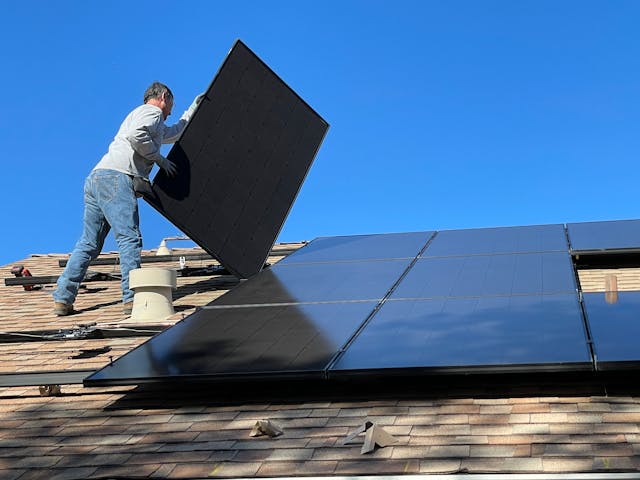
Monocrystalline Silicon might be the best choice. If you have limited roof space and prioritize maximizing energy production, monocrystalline silicon panels offer the highest efficiency ratings. They are ideal for businesses that require a high level of solar energy output.
Seeking a Balance Between Efficiency and Cost
Polycrystalline Silicon could be a good option. If you want a balance between efficiency and cost, polycrystalline silicon panels offer a good middle ground. They are slightly less efficient than monocrystalline panels but are more affordable, making them a suitable choice for businesses with moderate energy needs and budget constraints.
Budget is Tight and Roof Space is Ample
Thin-Film could be a viable choice. If you have a large roof space and a tight budget, thin-film panels might be a suitable option. While they offer lower efficiency compared to crystalline silicon panels, their lower cost can make them attractive for businesses with less stringent energy requirements.
Finding the Perfect Match: Partnering with Solar Experts
Ultimately, the best type of solar panel for commercial use requires a custom fit for your business. Partnering with a reputable solar installer is key. They will assess your energy needs, roof space, and budget to recommend the optimal panel type and design a customized solar system that maximizes your energy production and return on investment.
Here at Prolectrix (https://prolectrix.co.nz/), we understand the unique energy requirements of businesses in New Zealand.
Our team of experienced solar experts can guide you through every step of the process, from analysing your needs and budget to recommending the best type of solar panel for commercial use for your specific situation. We’ll design and install a customized solar system that helps your business harness the power of the sun and reduce your energy costs for years to come.
Conclusion
Investing in solar power is a smart decision for businesses looking to save money, reduce their environmental impact, and secure a more sustainable future. By choosing the right type of solar panel and working with a skilled solar installer, you can tap into the power of solar energy and create a greener, more cost-effective future for your business.

